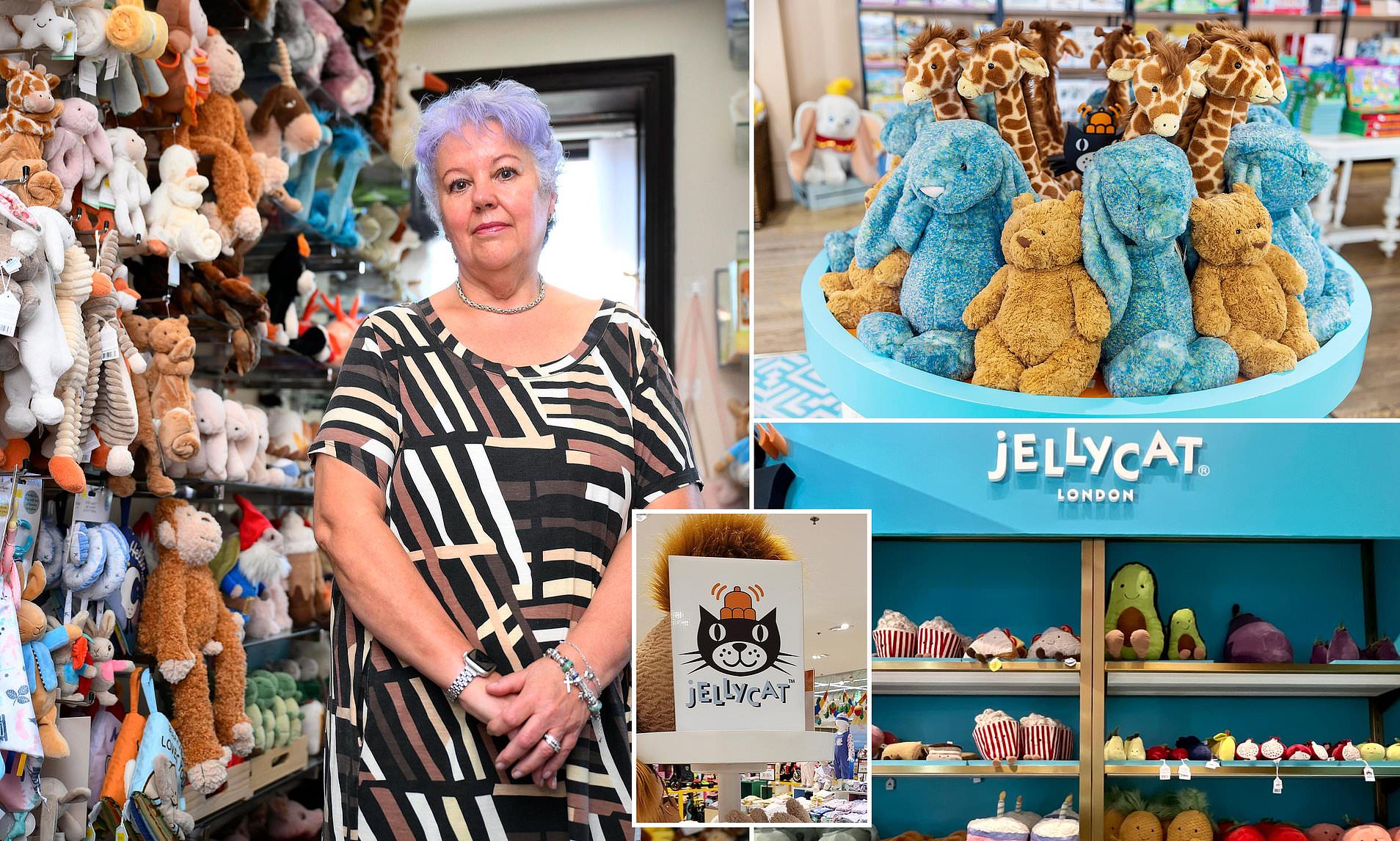The Rise and Controversy of Jellycat
Jellycat, the beloved British plushie brand, has captured the affection of the royal family’s youngest members and become a hot commodity for collectors. Prince William has even referred to the brand’s soft toys as his children’s “currency,” highlighting their popularity among families. Some rare designs can fetch thousands of pounds on online marketplaces, making them highly sought after.
However, the London-based company is now facing criticism over its decision to cut ties with approximately 100 independent retailers. Marketing experts argue that this move could harm Jellycat’s reputation as a brand that values small businesses and community connections.
One such retailer affected is Puddleducks, a children’s clothing shop based in Diggle near Oldham. For 34 years, the store has been selling Jellycat products, with the brand accounting for nearly one-third of its sales. Owner Alison McCabe was taken aback when she received an email from Jellycat announcing the end of their partnership. The message stated that the company would now work with over 1,200 independent retailers across the UK, but it also noted that not all stores could be included.
McCabe expressed her disappointment, stating that she had stocked Jellycat for almost two decades before the brand gained widespread attention. She felt the decision was abrupt and lacked any communication or explanation. “There’s been no communication at all,” she said. “If they wanted us to display the toys differently, we could have had a conversation.”
Other affected retailers include Bo Peep Boutique in Lincoln and Rumours gift shop in Whitby, North Yorkshire. Both received similar messages from Jellycat, leaving them feeling betrayed and confused. Rumours posted on Facebook: “This is obviously extremely disappointing, having supported the company for over two decades.”
The backlash on social media led Jellycat to suspend reviews on Trustpilot, a move that sparked further controversy. Professor Anthony Patterson from Lancaster University Management School commented that while the decision might help maintain exclusivity, it risks causing customer frustration. He warned that smaller retailers who have long supported Jellycat may suffer significant financial losses, potentially leading to closures.
Influencer marketing consultant Scott Guthrie pointed out that by directing more customers online, Jellycat could increase profit margins. However, he cautioned that the brand’s strong sense of community, fostered through Gen Z engagement on platforms like TikTok, could be negatively impacted. Losing long-time stockists may weaken the brand’s connection with its loyal fanbase.
Jellycat claims it remains committed to supporting small businesses, emphasizing that 1,200 independent stores will continue to stock its products. Initially, the company stated that these retailers were chosen for their “amazing in-store experience.” However, as the controversy grew, Jellycat issued an apology, expressing regret for the hurt caused to affected retailers and their customers.
The company also claimed that cutting around 100 stockists would allow it to provide better service to those that remain, ultimately benefiting customers. It added that it is increasing supply as quickly as possible without compromising quality or production standards.







